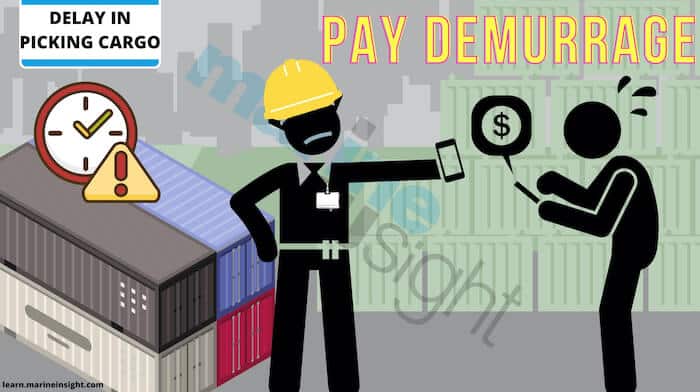If you’re looking for an effective way to save money on Sea freight, you want to look into demurrage charges. Another great aspect not included in this post include the Detention and Storage Charges. You want to know how to avoid demurrage charges
The fees attached to demurrage, detention and storage charge are some of the most common reasons many importers are out of business today. These issues are rather understood in a proper way because they have serious tendencies of making your import business unprofitable.
In this post, we’ll define these fees, explain how they work and provide expert advice on how to avoid them.
What are Demurrage Charges?
Demurrage charge is a fee that is charged for the storage of cargo after the expiration of the free time allowed. It is a penalty for holding goods beyond a certain date, which is usually set by the carrier or shipping line.
This charge can amount to up to 20 times the value of the container as the charge accrues every day that the fee that is charged for every day that your shipment remains in the container yard.
The fee is calculated as per the number of days your shipment has been delayed at the port. It is charged for the storage of cargo after the expiration of the free time allowed. Simply put, it is a penalty for holding goods beyond a certain date, which is usually set by the carrier or shipping line.
Let’s assume you ship items by sea, you may have already observed that demurrage and detention charges mount up quickly.
How to avoid demurrage?
This is a question that many people have been asking as the Customs Service at the Nigerian Ports are increasing their demurrage fees.
It is important to note that demurrage fees are imposed by Customs when containers sit on the wharf for more than 24 hours after clearing through customs. The fees are calculated on a daily basis and charged to importers and exporters alike. If you are importing or exporting goods into or out of Nigeria, it is important that you know how to avoid demurrage at all costs when dealing with Customs at the Nigerian Port.

Here is how you can avoid demurrage:
Engage in Appropriate Term Negotiation
The Carrier or Shipping line is likely to have an open-door policy. Use this to your advantage and negotiate terms before accepting a freight estimate. During the negotiation, try to request additional free days in order to accommodate you and avoid demurrage. Some Carriers or Shipping Lines may allow you more free time if you have a significant amount of cargo or containers, like 800 containers or more.
Make a backup strategy in the event that the first one fails.
The main purpose of creating a backup plan is to have something to fall back on in the event that the first plan fails. Look for alternate transportation prices, truck services, or nearby terminals to channel your freight. You will save a lot of money by doing so.
Dispatch in Advance, Time Management
You may only need to dispatch your cargo ahead of time to have greater flexibility and time to deal with unforeseen occurrences. This can help to avoid unforeseen issues such as port backlogs and even harsh weather.
Be Well-Informed and Well-Prepared
The safety of your consignment is as crucial as having enough awareness of the contract specifics. Before signing a contract, make an effort to become acquainted with pertinent information. The contract may be lengthy, but it must be properly read. Ascertain that you are well-versed in customs clearing procedures and port rules.
Read Also: 7 Important Shipping Mistakes To Avoid When Importing
Who is Responsible for Demurrage Charges
In the case of imports, the ‘Demurrage charge’ is issued by the shipping company to the importer if he/she fails to empty the container or transport it out of the port for unpacking within the agreed-upon free timeframe, which is typically 6-7 days.
If the loaded containers cannot be dispatched within the specified time frame owing to non-carrier reasons, export demurrage is paid.
Conclusion
Demurrage is a common issue that you must do all in your power to avoid by all means possible.
As a matter of necessity, this is why you must consider seeking the services of a professional if you really want to be profitable in your business. It’s usually a win-win situation when you engage reliable freight forwarders and qualified Customs Licensed Agents rather than seeking help from roadside agents who may not have what it takes to build the needed trust or carry out the assignment independently.
I have a few recommendations to look into before you consider a freight forwarder, in another post.





